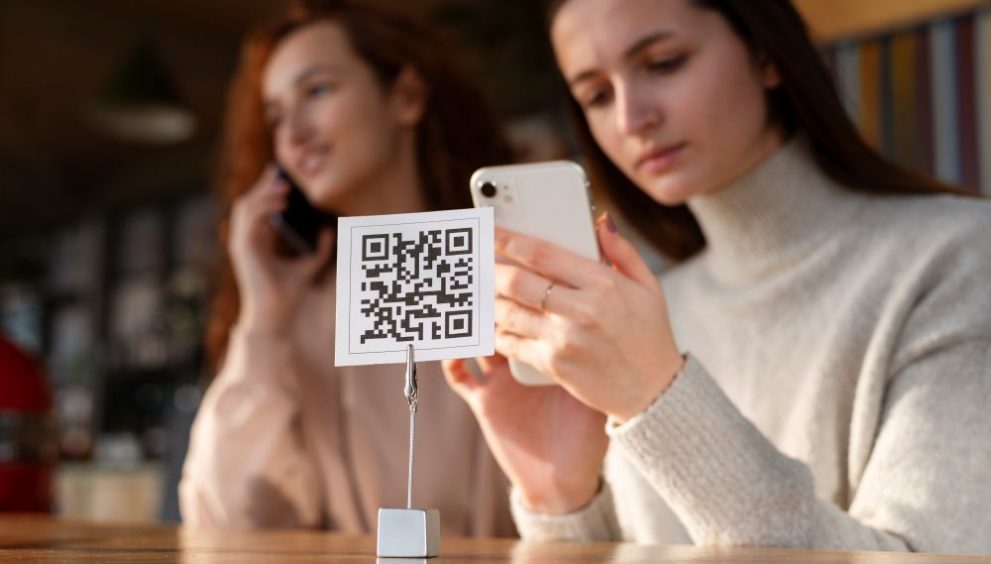QR codes have become increasingly popular for their convenience and versatility, allowing users to quickly access websites, make payments, or download information with a simple scan. However, this technology has also caught the attention of cybercriminals who exploit QR codes to carry out various scams. As a result, it’s crucial to be aware of the risks associated with QR code scams and know how to protect yourself from falling victim to these schemes.
In this blog, we’ll explore the world of QR code fraud, explaining what QR code scams are, how to identify malicious QR codes, and what steps you should take if you encounter a scammer QR code.
What is a QR Code Scam?
A QR code scam is a type of cybercrime that involves the use of malicious QR codes to deceive individuals into revealing sensitive information or making fake QR code payments. Scammers create these codes to direct users to fraudulent websites that mimic legitimate ones, tricking them into entering personal details, login credentials, or financial information. Once the scammer has obtained this data, they can use it for identity theft, unauthorized transactions, or other nefarious purposes.
Common Scams Involving QR Codes
There are several types of scams that involve the use of malicious QR codes:
- Phishing Scams: Scammers send emails or text messages containing QR codes that lead to fake websites designed to steal login credentials or personal information.
- Malware Distribution: QR codes can be used to direct users to websites that automatically download malware onto their devices.
- Fake Payment Scams: Fraudulent QR codes may be placed on fake parking meters, vending machines, or donation boxes, tricking people into making fake QR code payments to scammers.
- Cryptocurrency Scams: Some QR code scams involve promising high returns on cryptocurrency investments, but instead steal the victim’s funds.
How to Identify Malicious QR Codes
To protect yourself from falling victim to a QR code scam, it’s essential to know how to spot potentially malicious QR codes:
Look for Unusual or Unfamiliar QR Code Sources
Be cautious of QR codes found in unexpected places or from unfamiliar sources. Scammer QR codes may be placed on flyers, posters, or stickers in public places to trick people into scanning them. If you see a QR code from an unknown source, it’s best to avoid scanning it altogether.
Avoid Scanning QR Codes from Unknown Contacts
If you receive an unsolicited email or text message containing a QR code, be wary of scanning it, as this could be a phishing attempt. Bar code fraud often involves scammers sending malicious QR codes to unsuspecting victims via email or SMS.
Check the URL Before Making Payments
Before making any payments or entering sensitive information after scanning a QR code, double-check the URL to ensure it belongs to a legitimate website. Barcode scams often involve directing users to fake websites with similar URLs to trick them into revealing personal data or making fraudulent payments.
Be Careful of QR Codes That Redirect to Download Links
If scanning a QR code automatically initiates a download or prompts you to install an app, this could be a sign of a scam using QR code. Malicious QR codes may be used to distribute malware or spyware onto your device without your knowledge.
Protecting Yourself from QR Code Scams
To minimize the risk of falling victim to a QR code scan fraud, follow these best practices:
- Only scan QR codes from trusted sources, such as official company websites or verified marketing materials.
- Use a secure QR code scanner app that checks the safety of the destination URL before opening it.
- Keep your device’s operating system and security software up to date to protect against the latest threats.
- Enable two-factor authentication on your accounts to add an extra layer of security, even if your login credentials are compromised.
- Trust your instincts – if a QR code or the website it leads to seems suspicious, avoid interacting with it.
What to Do if You Scan a Malicious QR Code
If you suspect that you’ve scanned a malicious QR code, take the following steps immediately:
- Disconnect your device from the internet to prevent any malware from communicating with its command and control server.
- Run a full system scan using reputable antivirus software like Quick Heal Total Security to detect and remove any malware that may have been installed.
- Change your passwords for any accounts that may have been compromised, especially if you entered login credentials after scanning the QR code.
- If you made any payments or provided financial information, contact your bank or credit card company to report the incident and request a new card if necessary.
- Report the scam using QR code to the appropriate authorities, such as the Anti-Phishing Working Group or your local law enforcement agency.
Preventing QR Code Scams: How to Stay Safe
To protect yourself from QR code fraud in the future, consider implementing these proactive measures:
- Educate yourself and others about the risks of QR code scams and how to identify malicious codes.
- Use a QR code scanner that offers built-in security features, such as real-time URL scanning and phishing protection.
- Avoid relying solely on QR codes for sensitive transactions; instead, manually enter URLs or use official mobile apps when possible.
- Support initiatives that promote the development of secure QR code standards and best practices.
Scan Securely with Quick Heal
As QR codes continue to gain popularity, it’s crucial to remain vigilant against the growing threat of QR code scams. By understanding how these scams work, learning to identify malicious QR codes, and taking proactive steps to protect yourself, you can safely enjoy the convenience of this technology without falling victim to QR code fraud.
Remember to only scan QR codes from trusted sources, check URLs before entering sensitive information, and keep your devices secure with up-to-date software and strong authentication measures. If you do encounter a scammer QR code, act quickly to mitigate any potential damage and report the incident to help prevent others from falling prey to similar scams.
Check Out Our Full Antivirus Range


